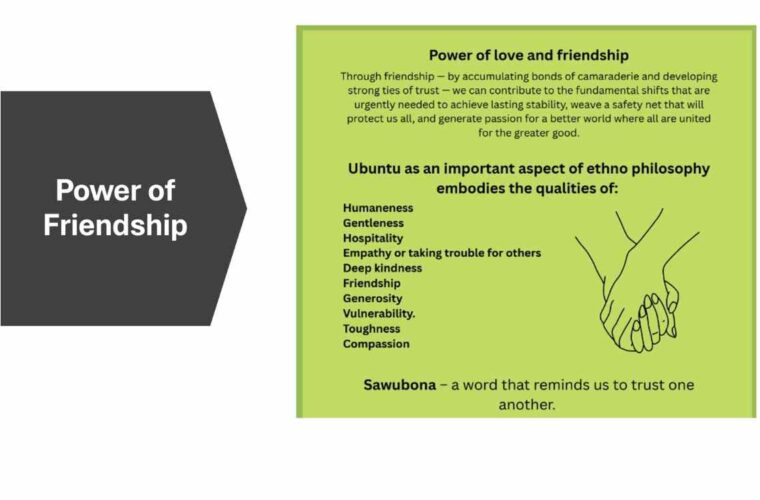When you hear the word governance what comes to mind? Regulation. Rules, compliance, responsibilities, order, accounts or bureaucracy? If that is what comes to your mind, you are right!
But governance can and often does have a human face. Relationships, Culture, Behaviours, Conflict, Community and Communication bring governance to life.
Compassionate Accountability brings the notion of being accountable with the essence of being compassionate and inviting trust, transparency and openness.
Ubuntu crystallises this in the King Code V of Governance (from South Africa) which has the following extract:
Ubuntu, corporate citizenship and stakeholder inclusivity. The adoption of the integrative or embeddedness paradigm as a reflection of the contextual realities within which organisations function, has far-reaching implications for how organisations should be governed. It is on the basis of this paradigm that King V asserts that organisations should create value not only for themselves but also in their economic, social and environmental context. The philosophies and ideologies of Ubuntu, corporate citizenship and stakeholder inclusive approaches (as opposed to adhering to the primacy of the interests of the providers of financial capital) are all expressions of the tenets of integrated thinking.
Integrated thinking results in a more holistic approach for leaders that leads to better decision making, independent judgement and the human face of governance in the form of Compassionate Accountability. It is not either or, it is both.
And Ubuntu is big on fostering and nurturing friendship, which is a value. In friendship we can bring empathy, warmth, connection, forgiveness and learning from failures as well as success. We can see each other across divides and build bridges rather than walls.





